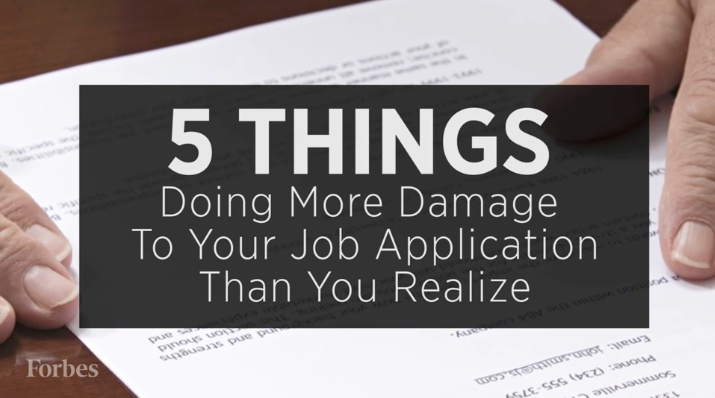
Wendy Mann, CEO Of CREW Network, On Helping Women Advance In Commercial Real Estate
By Liz Elting
Women open more doors to success when we work with and support other women. This has been borne out time and time again, and the pandemic has only heightened the importance of that fact. Statistically, women are more likely than men to hire women; statistically, women are more likely to be promoted by women managers than their male counterparts; statistically, women step away from their careers permanently far less often when it’s a woman-owned business. Now, there are loads and loads of reasons for all that, but at the root, it comes down to conscious and unconscious sex-based biases still pervading the professional world (e.g., that women are best suited to care for children, or are not sufficiently committed to their jobs if they have them, and so on and on and on).
That’s part of why I so frequently beat the drum for women to start their own businesses, because over the course of the last two years, women have been forced out of the workplace in massive numbers, with our return to employment both closely matching whether or not people are optimistic that kids will be able to go to school and largely limited to low-paying service and hospitality jobs.
So it’s with great interest that I recently sat down to speak with Wendy Mann, CEO of the CREW Network. CREW is precisely the sort of thing we need more of: a professional development and networking organization for women, in this case specific to commercial real estate. It offers leadership training, certificate programs, and more, all with the goal of advancing women globally in one of the largest and most economically powerful industries on the planet.
Liz Elting: First of all, I wanted to thank you for taking the time to speak with me today. Please tell us a bit about yourself, CREW Network, and why it matters.
Wendy Mann: I’m a small-town girl (rural Pennsylvania) who traveled to the big city (Washington, D.C.) in search of a career and exciting life. While I had hoped to follow in the footsteps of Barbara Walters, I ended up working in the association profession. I’ve worked for organizations that represent many different industries and professions throughout my career. I have the good fortune to lead an organization that is enabling me to truly make a difference for women.
CREW, which stands for Commercial Real Estate Women, is a global membership organization of 12,000 commercial real estate professionals who do business together, support one another, and thrive as leaders. Our mission is to transform the commercial real estate industry by advancing women globally. Members are approximately 96% women.
CREW Network matters because in a world where companies want bottom line results, studies show that when women are on boards or in executive level positions, the companies end up with stronger returns and bottom lines. It matters for women to get a voice at the table and help lead companies because studies have shown that the future is female—the majority of the buying power and personal wealth is going to be controlled by women. Companies need to position themselves now for that future.
Elting: CREW Network was founded in 1989, what was the situation like for women in real estate at that time?
Mann: In the late 1980s, women were just getting into commercial real estate. Some learned about the industry through residential real estate roles, and some entered through other business functions such as law and finance. Much of the industry was family-owned business and leadership was passed down from father to son. When the glass ceiling stopped them at the door, they sought out other women to exchange information, develop business contacts, and help each other succeed professionally.
In 1989, 11 East and West Coast local groups of women in real estate joined together to create the organization now known as CREW Network. The founders believed that if women gave and received business from one another, they could advance together in the business. Our multidisciplinary organization enables women to complete a deal from end to end with CREW members. That is the power of CREW Network.
Elting: And how has that situation changed?
Mann: The situation for women has not significantly changed in 30 years, unfortunately. That is why we continue to put efforts into research and leadership training to help advance women in the industry.
Today, CREW Network has grown to 12,000 members in 12 countries and more than 77 markets globally. While women are certainly making gains and finding success in the industry, they are still paid and promoted less than their male counterparts. Women made 10% less in base salary and 56% less in bonus and commissions in 2020. And the disparities are even greater for women of color. We have many more industry insights and data points from our benchmark studies and annual research publications.
Now, many commercial real estate companies are making gender equity and DEI a priority—and this wasn’t even a conversation 30, maybe even 20 or 10 years ago.
Elting: This past fall, you launched the CRE Pledge for Action. Can you tell us more about that? What it is, what you hope to accomplish through it, and how is it going so far?
Mann: Our 2020 benchmark study data indicated that our collective efforts to achieve parity and greater diversity are far from complete—in fact, very little progress has been made in the last 15 years. It was time to take immediate, industry-wide action.
The CRE Pledge for Action is the first CEO-driven commitment to advance women and DEI in commercial real estate. More than 55 CEOs have signed to support the advancement of women and other individuals in underrepresented groups including but not limited to race, ethnicity, sexual orientation, ability, religion and age. These CEOs and their companies have committed to six goals that address industry-wide issues such as the compensation gap, lack of diversity, and the gender imbalance in leadership. By committing to these goals, CEOs send a clear message to their employees, partners and clients that they stand for women and DEI. We are asking companies to strive to attain these goals by 2025 so that we can measure progress in our next industry benchmark study.
Elting: Since it first reared its ugly head over a year and half ago, I’ve been closely tracking the she-cession and frequently writing about it here. Across the board, women have been unable to recover a significant number of pre-pandemic jobs, and what expansion in women’s employment we have seen has largely taken place in low-paying, customer-facing, and seasonal roles in retail and hospitality. How have women been impacted by the pandemic in your industry?
Mann: Our pledge and industry-wide commitments couldn’t have come at a better time. This fall, we also released a research publication, A Catalyst for Change: COVID-19’s Impact on Women in Commercial Real Estate. The overall impact of the pandemic on women in commercial real estate was both challenging and filled with opportunity.
While 12% of the real estate professionals we surveyed left their jobs in the last year or so, 24% of respondents said that women in their work location left the company voluntarily as a result of the pandemic. Values and priorities of women are changing—they are valuing and pushing for flexibility more than ever. Nine out of 10 women said their personal priorities changed. Now is the opportune time to push forward, make change, and create the workforce of the future.
Elting: What remains to be done?
Mann: We know that change starts at the top. When a CEO makes a commitment, the responsibility and accountability spreads throughout the company. Therefore, we must continue to grow the commitment from real estate company CEOs. We recognize that many companies have already been working toward DEI goals and some companies are just getting started. No matter where they are in the process, we want them to sign on to the pledge and make that commitment because we know that action—and change—will follow.
Elting: What’s your vision for the future of women in real estate and beyond?
Mann: My vision is that I’m out of a job because there is pay parity, equal opportunity for women to advance, and thousands of women leading from the C-suite. Then I’ll know I’ve done my job. Then I’ll know that the future generations will have women role models that enable them to see what’s possible.





